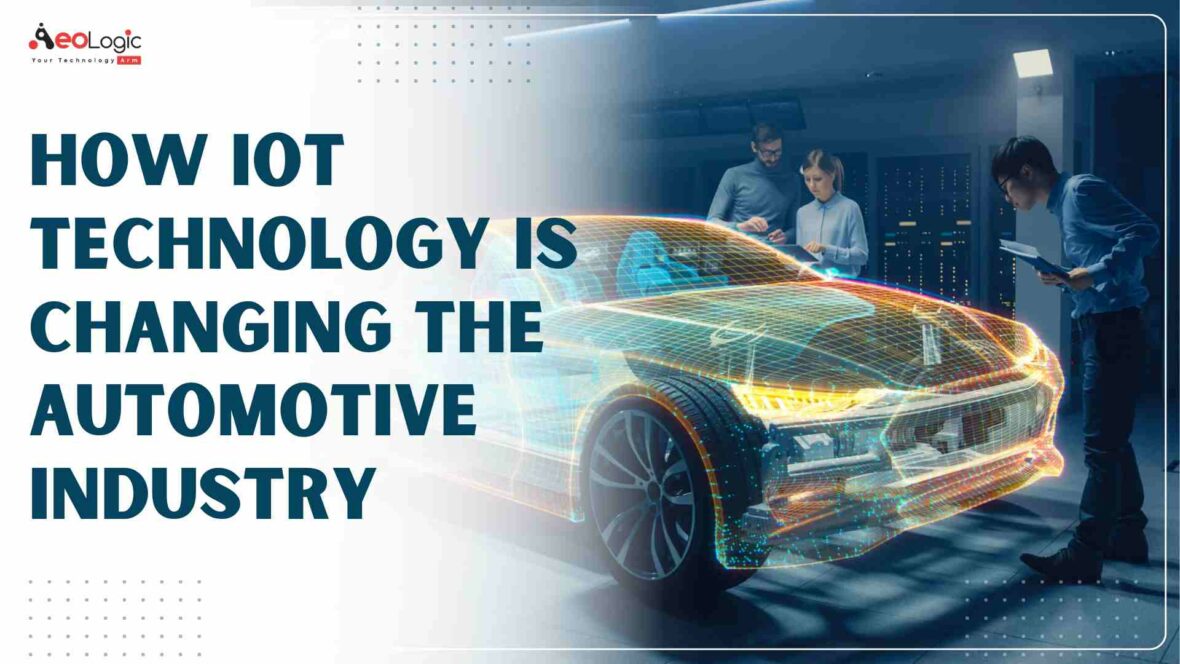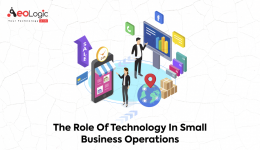The Internet of Things (IoT) is a network of physical objects that are embedded with sensors, software, and connectivity to enable them to collect and exchange data. From the article: “In 2015, it was estimated that there were 8.4 billion IoT devices in use across the globe.” In this article, we explore How IoT Technology is Changing the Automotive Industry.
Lets begin!
Table of contents
- Overview
- How IoT Technology is Changing the Automotive Industry
- What are the Benefits of IoT Technologies?
- What Industries have Benefitted from IoT Technologies?
- Conclusion
Overview
In the automotive industry, IoT technology has helped to revolutionize the car-buying process. In some cases, it can even mean that a consumer won’t have to go to a dealership to purchase their next vehicle! This article provides an overview of how IoT technology is changing the automobile industry and what effect it could have on yours.
Cars are becoming more and more automated, which means that the features and systems installed have to be able to communicate with each other in order for them to work together. This article will explore how IoT technology is changing the automotive industry by looking at three specific cases: car networking, car security, and autonomous vehicles.
The concept of IoT has become more and more popular in recent years. This blog post will take a look at how IoT technology is changing the automotive industry, as well as what potential benefits it can offer. With all the technological innovations being made in the automotive industry, it’s hard to know where to start. Take a look at this article for an overview of the ways that IoT is revolutionizing the automotive industry.
Also Read: 10 Ways to Use Artificial Intelligence to Improve Business Processes
How IoT Technology is Changing the Automotive Industry
IoT technology is revolutionizing the automotive industry. By 2020, there will be over 250 million connected vehicles on the road. This means that your car will be able to connect to the internet and share data with other connected devices.
This connectivity will change the way we interact with our cars. We will be able to use our smartphones to control features in our cars, like locks, lights, and climate control. We will also be able to access information about our car’s condition, like the tire pressure and oil level, from our phones.
This increased connectivity will also make it possible for cars to communicate with each other and with infrastructure, like traffic lights and parking meters. This communication will help to make driving safer and more efficient. For example, if two cars are about to collide, they can warn each other so that the drivers can take evasive action.
The automotive industry is already starting to feel the effects of IoT technology. Many new cars come equipped with internet-connected features, and more and more manufacturers are offering apps that allow you to control your car from your phone. As this trend continues, we can expect even more changes in the way we drive and maintain our vehicles.
Also Read: The Role of AI in Education And Learning: Just Promises Or Revolution
What are the Benefits of IoT Technologies?
The automotive industry is on the cusp of a major transformation, thanks to the internet of things (IoT). By 2020, there will be an estimated 250 million connected cars on the road, and the global market for automotive IoT applications is expected to reach $82 billion by 2025. Here are four ways that IoT is changing the automotive industry:
- Smarter Cars: With sensors and connected devices, cars are becoming increasingly “smart” and able to gather and analyze data. This data can be used to improve safety, increase efficiency, and enhance the driving experience.
- Connected Cars: One of the most promising applications of IoT in the automotive industry is the development of connected cars. Connected cars are able to communicate with each other and with infrastructures like traffic lights and parking meters. This enhanced communication can help reduce accidents, optimize traffic flow, and find available parking spaces.
- Autonomous Vehicles: While still in development, autonomous vehicles are another exciting application of IoT technologies in the automotive industry. These vehicles use sensors, cameras, GPS, and artificial intelligence to navigate without input from a human driver. autonomous vehicles have the potential to greatly reduce accidents and traffic congestion while increasing efficiency.
- Improved Maintenance: With IoT-enabled devices in their cars, drivers can receive real-time alerts about maintenance issues like low tire pressure or engine trouble. This allows drivers to address problems early on before they become more serious (and expensive) issues.
Also Read: IoT in Agriculture: Cultivating Productivity with Smart Farming
What Industries have Benefitted from IoT Technologies?
IoT technology has had a profound effect on the automotive industry. One of the most significant changes has been in the way that vehicles are manufactured. The use of sensors and other connected devices has allowed manufacturers to gather data about how vehicles are being used, which has in turn led to improvements in the manufacturing process. This has resulted in better-quality vehicles and increased efficiency.
Another area where IoT technology is having an impact is in the area of vehicle safety. By collecting data from sensors and other connected devices, automakers are able to identify potential safety issues and take steps to address them. This has led to safer vehicles and fewer accidents.
Finally, IoT technology is also changing the way that customers interact with their vehicles. Increasingly, customers are using their smartphones and other connected devices to control their vehicles. This includes everything from starting the engine to opening the doors and adjusting the climate control. As this trend continues, it is likely that even more features will be added that allows customers to control their vehicles in new ways.
Also Read: Why Is CRM Software a Game-changer When It Comes to Delivering Better Customer Experiences?
How Does IoT Technology Change the Customer Experience?
IoT technology has the potential to change the customer experience in a number of ways. For example, it can allow customers to interact with their vehicles in new and innovative ways. It can also provide customers with better information about their vehicles, and allow them to easily customize their vehicles to their preferences. Additionally, IoT technology can help automotive companies better understand customer behavior and needs, and enable them to provide more personalized service and support.
Conclusion
The automotive industry is evolving rapidly, and IoT technology is playing a major role in its transformation. By connecting vehicles to the internet, automakers are able to collect vast amounts of data that can be used to improve safety, efficiency, and the overall driving experience.
Additionally, IoT-enabled cars are becoming increasingly popular with consumers, as they offer a host of convenient features and services that were once unimaginable. As the automotive industry continues to embrace IoT technology, we can expect even more exciting changes in the years to come.
Are you looking to implement technology into your business? If yes, so, please feel free to contact us at support@aeologic.com
Also see: Our RFID Solutions
Related Blogs:
- How AI/ML Can Change the Public Transportation Industry
- Transforming Business With Digital Technology in the Oil Palm Industry in India
- Importance of Digital Asset Management in the Retail Industry
- How AI is Transforming the Agriculture Industry
- 10 Ways to Use Artificial Intelligence to Improve Business Processes
- The Future of IoT Technology in Convenience Stores
- Building Manufacturing Resilience Through AI and ML






